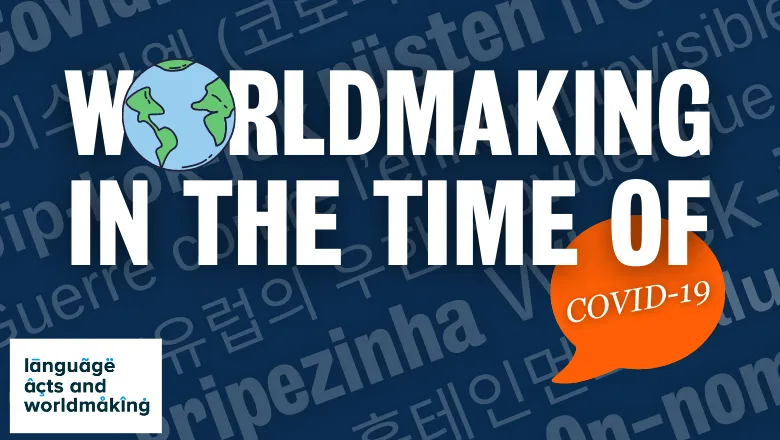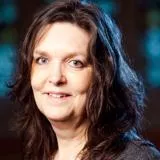We narrate the world around us in order to understand it, share experience, think to the past and the future. And it is in these stories from all over the world that we might learn the daily experience of the Covid-19 pandemic. We know from our literary, cultural, linguist and historic research that words like war, conflict, contagion, invasion, fear, sanity and cleansing inhabit the ways in which we articulate our responses – collective and subjective – to moments of crisis. It is important that we have a clear understanding of these articulations at the present moment in an already volatile geopolitical situation.
Professor Catherine Boyle
16 March 2021
Worldmaking in the Time of COVID-19 podcast launches
The Worldmaking in the Time of COVID-19 podcasts seek to understand the cultural and geopolitical significance of the virus

A new podcast series looking at the way the COVID-19 pandemic has been narrated by print and digital media around the world has launched.
The Worldmaking in the Time of COVID-19 podcast seeks to understand the cultural and geopolitical significance of the virus by comparing and analysing the narrative in more than 110 countries and 12 different languages. More than 1.1 million articles were examined.
The podcast series also analyses the interesting new terminology that has emerged from the pandemic.
How do the terms we hear in the UK – around, for example, the concepts of war, contagion, invasion, isolation, community – compare and relate to those that might circulate and form meaning in other cultures? What can we learn from this? How has language been used as propaganda by governments?
The podcast is launching one year on from when the UK entered its first lockdown, March 16 2020.
Awarded money from the King’s Together Coronavirus Rapid Response Fund, the Worldmaking in the Time of COVID-19 project was led by Professor Catherine Boyle of the Department of Spanish, Portuguese and Latin American Studies and Principal Investigator of the AHRC-funded Language Acts and Worldmaking project.
The data was mined by 19 language students using software analysing the main media sources from the various countries between January and April of 2020. More than 17,000 articles were mined a day.
The languages analysed are Arabic, English, French, German, Hebrew, Italian, Japanese, Korean, Mandarin, Russian, Portuguese and Spanish.
Listen to the episodes here.
Episode 1: Moving Geographies – the episode looks at how the narrative and language changed as the virus spread to the west from Wuhan, China with 12 languages represented by our ambassadors.
Episode 2: Coronavirus vs Covid-19 – the episode examines the significance of the use of the words Coronavirus or Covid-19 in Italian, Russian, French, Arabic and German.
Episode 3: Propaganda and Combat Narratives – the episode explores how the media reported medics ‘fighting on the frontline’ and used war-like language in Hebrew, Japanese, Russian, French and Spanish.
Episode 4: Future and Morality in the Global Narrative of Covid-19 – the final episode investigates how questions of morality were raised by the pandemic and global lockdowns. The languages covered in this episode are English, Spanish and Italian.
Engage with the Worldmaking in the Time of COVID-19 project on Twitter: Follow @languageacts and @kingsartshums and use the hashtag #Worldmaking
(Aug 2022 - The Department of Spanish, Portuguese and Latin American Studies is now the Department of Languages, Literatures and Cultures).

